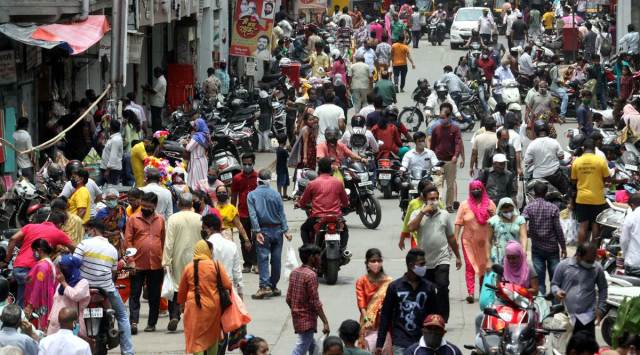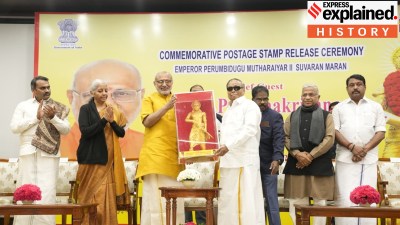Positivity rate of less than 5 per cent for a week, vaccination of 70 per cent of the vulnerable population, and community ownership of Covid-appropriate behaviour and care — the Centre on Tuesday laid down key un-lockdown criteria for districts to ward off a possible third wave.

“In terms of preventing the third wave, it is very simple that districts with less than 5 per cent positivity should open up a little bit… they should open very gradually. They should ensure that the vulnerable population should achieve at least 70 per cent vaccination… if that has not been achieved, they should vaccinate them and then open up,” Bhargava said.
Bhargava’s statement comes in the backdrop of 344 districts — nearly half of India’s 718 districts — now reporting seven-day positivity of less than 5 per cent. That’s an improvement from the week ending May 7, when only 92 districts reported a positivity rate of under 5 per cent, the Ministry said.
According to the Health Ministry’s vaccination data, as of May 13, 32 per cent of those in the 45+ age group have got their first dose.
“We are in the midst of a ferocious second wave, although it has been abating now. If we look at the data, in the first week of April, we had less than 200 districts that had more than 10 per cent positivity. And in the last week of April, we had nearly 600 districts with more than 10 per cent positivity… Today, there are 239 districts in the country which have more than 10 per cent positivity; 145 districts are between 5 per cent-10 per cent positivity; and 350 districts, which is nearly half of India, have less than 5 per cent positivity. Therefore, we are moving in the right direction,” Bhargava said.
He said that while district-level containment has worked, it is “not a sustainable solution” and thus, a mechanism to ease lockdowns needs to be worked out. “It has to be done very gradually and very slowly. Basically, the opening up revolves around three pillars: one, the test positivity rate in that particular district has to be less than 5 per cent over one week… so seven-day average has to be less than 5 per cent. Second, vulnerable individuals, that is elderly more than 60 years and more than 45 years with comorbidities, should be vaccinated. Their vaccination rate should reach up to 70 per cent… Third, community ownership for Covid-appropriate behaviour and care should be taken up… in a big way… We have to remember our vaccination is being ramped up. By December, we hope to have the whole country vaccinated…,” Bhargava said.
Story continues below this ad
On Tuesday, the head of India’s Covid-19 task force, Dr V K Paul, said India will stick to the two-dose schedule for Covishield and Covaxin, and clarified that mixing of vaccines is not part of the country’s vaccine strategy.
“I want to make it clear that Covishield and Covaxin schedule in India is a two-dose schedule, there is absolutely no change. There should be no doubts about it. We have to compulsorily take two doses,” Paul said.
“Similarly, on mixing of vaccines… there is one possibility that the body can show adverse reaction with the second vaccine. This is a scientific consideration, especially when the other vaccine is built on a different platform. The other science also indicates that if the first dose is of one vaccine and the second dose is of another, there could be an increase in immunity. The possibility of a positive effect is also plausible… there is research going on in other countries. It is an unresolved scientific question… there is no change in the vaccination strategy and there is no mixing of vaccines,” Paul said.
Dr N K Arora, chairman of the Covid-19 working group under the National Technical Advisory Group on Immunization (NTAGI), had earlier told The Indian Express that work on testing the feasibility of a regimen that mixes two Covid vaccines could begin soon. “We are looking for a combination of vaccines that provide better protection. At the moment, the vaccines used are providing protection against severe disease, but they are not providing protection from infection and transmission of the virus to the extent that we would have liked,” he said.









